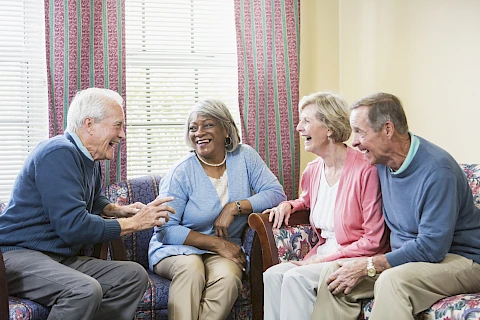
Receiving a dementia diagnosis can be a life-changing event. Dementia affects memory, thinking, and social abilities. It's common to feel a range of emotions, such as fear, anger, or embarrassment. Many people feel the urge to withdraw from social activities and routines. However, you must address this tendency to isolate. Staying socially active helps slow the progression of dementia and improving overall well-being.
The Benefits of Socializing
Socializing after a dementia diagnosis offers many benefits. These are not only important for cognitive health but also for emotional and physical well-being.
Cognitive Stimulation
Engaging in conversations and participating in activities that involve thinking can help keep the mind sharp. Talking to friends and family, playing games, and engaging in hobbies can stimulate your mind. Regular social interaction may help slow down memory loss and other cognitive issues associated with dementia.
Emotional Well-being
Maintaining social connections can greatly impact emotional health. Staying connected with others can combat loneliness, which is common in individuals with dementia. When you're around loved ones and friends, it can elevate your mood and make you feel valued and supported.
Physical Health
Social activities often involve some degree of physical movement, which is beneficial for overall health. Activities like walking in the park or dancing at a social event can help keep you physically active. Being active and engaged can contribute to better physical health and a longer, more fulfilling life.
Overcoming Barriers to Socialization
Socializing with dementia can have its challenges, but many barriers can be overcome with some effort and creativity. Feeling embarrassed or facing stigma can be significant barriers. Understanding and accepting the condition can make it easier to explain it to others. Find activities that suit your new needs and abilities. Look for simpler, low-stress activities that can be enjoyed without frustration. Many communities offer programs specifically designed for people with dementia.
Practical Tips for Staying Socially Active
Maintaining social connections may require some adjustments, but it's definitely achievable. Keeping up with friends and family is vital. You should set a specific day and time each week for visits to ensure regular contact. It's important to let those close to you know how you're feeling and what you need to strengthen your bonds.
It can also be beneficial to make new friends. Community centers often offer clubs or activities that can be a great way to meet new people. Volunteering can provide a sense of purpose and new social opportunities. Technology can be a helpful tool for staying connected. Platforms like Facebook and Skype can help you stay in touch with distant friends and family. These can provide support and a sense of community from the comfort of home.
Senior Helpers Naperville Offers Services for Seniors With Dementia
Staying socially active after a dementia diagnosis is crucial for slowing cognitive decline and enhancing emotional and physical well-being. Taking proactive steps to maintain existing relationships and make new connections can make a significant difference. For families and seniors in Naperville, Aurora, Oak Park, Berwyn, and Willowbrook, Senior Helpers Naperville offers support and resources to help you stay socially involved. Reach out today to find out how we can assist you in maintaining your social connections and enhancing your quality of life.